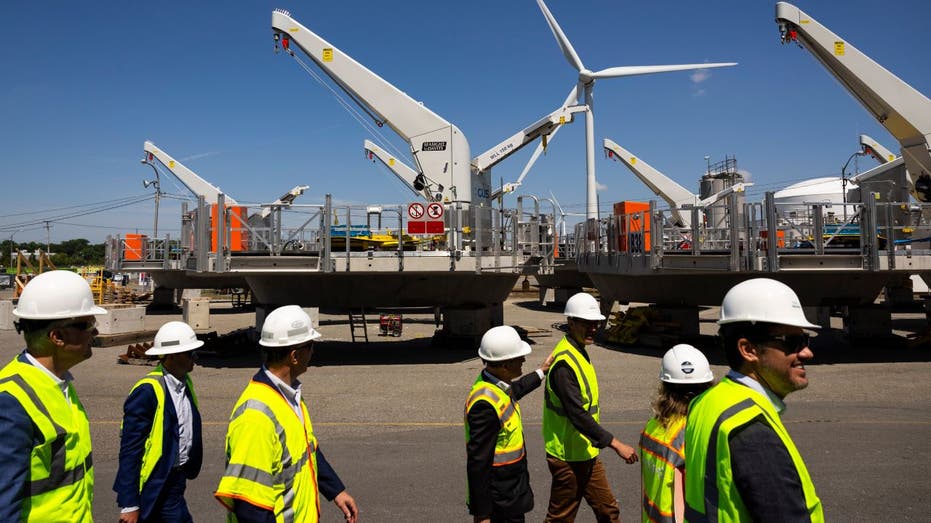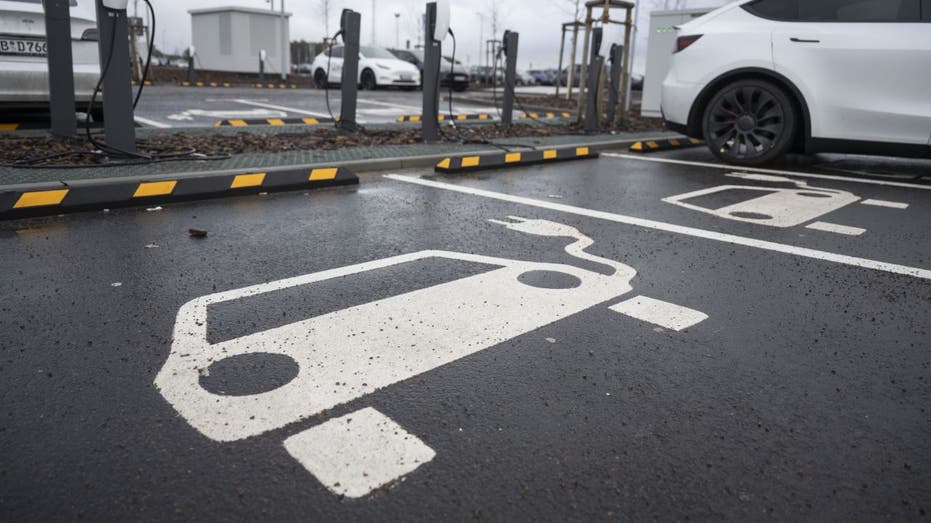The Biden administration on Tuesday announced final rules for clean energy tax credits that involve requirements for paying workers prevailing wages and hiring apprentices to receive the largest possible tax credit.
The clean energy tax credits are aimed at making the clean energy industry more competitive with those in the oil and gas sector amid the White House’s push to deliver on President Biden’s initiatives aimed at creating good-paying jobs while fighting climate change.
Funding for the credits was provided through the Inflation Reduction Act (IRA), which contained roughly $370 billion in funding for a variety of solar, wind and electric vehicle subsidies and tax credits. The Treasury Department said that since the IRA’s enactment in 2022, the “announced investments in clean energy projects have projected the creation of more than 270,000 jobs, and studies project that more than 1.5 million additional jobs will be created because of the law over the next decade.”
Under the Treasury Department’s rules, companies that pay prevailing wages to workers and hire apprentices for projects that are seeking tax credits under the IRA would receive a tax credit five times larger than the base credit of 6% provided by the Inflation Reduction Act.
CALIFORNIA, NEW YORK AND ILLINOIS CONSIDER APPLYING WARNING LABELS TO GAS STOVES
“President Biden’s Inflation Reduction Act has driven an investment boom while ensuring that workers building the clean energy economy benefit from good pay and new opportunities to get ahead,” Treasury Secretary Janet Yellen said in a statement. “Treasury’s final rules ensure we have skilled workers ready to take advantage of the jobs being created by these historic investments.”
Acting Labor Secretary Julie Su said the rule will “ensure these tax breaks are providing real, tangible benefits to workers in communities across the country” and added that the Biden administration “is doing everything we can to make sure working people share in the prosperity of a clean energy future.”
BIDEN ADMIN HIT WITH LAWSUIT OVER RULES ABOUT DISHWASHERS AND WASHING MACHINES

The Treasury Department’s Internal Revenue Service (IRS) will be tasked with enforcing compliance with the new rules.
Sean McGarvey, president of the labor group North America’s Building Trades Unions (NABTU), told reporters that while oil and gas companies have historically paid “top wages and fringe benefits,” that hasn’t been the case “in the renewable industries that have burgeoned over the last several decades.”
McGarvey added the new rules will bring “huge increases for many, many people that are existing in this industry right now and the hundreds of thousands of people to join this industry with middle-class, family-sustaining wages and with good health care and post-retirement benefits.”
ENERGY BILLS EXPECTED TO RISE AS SUMMER TEMPS CLIMB

Phil Flynn, senior account executive and market analyst at Price Futures Group and a FOX Business Network contributor, said in an interview that the rules’ requirements for pay and hiring apprenticeships could further the “competitive disadvantage” the U.S. faces relative to China in the green energy space.
“I think we’ve seen in this country, sometimes our labor unions have priced our workers out of the market and what we’ve seen is a lot of U.S. manufacturing being forced offshore,” Flynn said. “And I’m not saying you shouldn’t try to pay competitive wages, but the government’s made a fundamental mistake in assuming that there’s demand for all these jobs that they want to create.”
“There is a better way to do this and I think they’re impeding the move to green energy and competitiveness by trying to micromanage it when they have no idea what their endgame is,” he added.
Flynn said the Biden administration should take a less restrictive approach to the U.S. oil and gas sector given the role it can play in helping to facilitate the energy transition.
“I think they need to re-engage all sectors of energy, the private sector – and that means oil and gas. The funny thing is, if you’re going to be successful in an energy transition, the people that you need more than anybody to make this happen is the oil and gas industry, but they continue to slap them in the face” with regulatory restraints, he said.
Reuters contributed to this report.
Read the full article here











